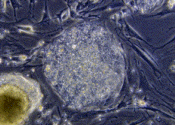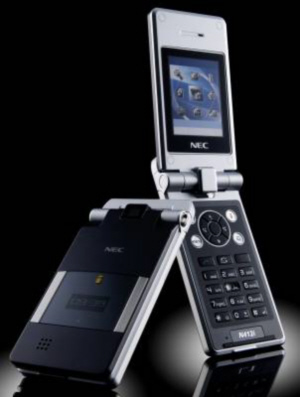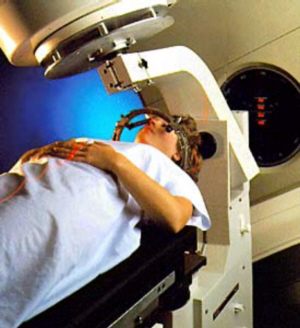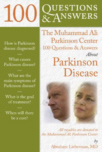26th November 2009 - New research
DOPAMINERGIC TRANSPLANTS FAIL IN PARKINSON'S DISEASE
Annals of Neurology [2009] 66
(5) : 591-596 (Olanow CW, Kordower JH, Lang AE, Obeso JA.)
Complete abstract
For years, cell-based therapies that involve the transplantation of dopaminergic
cells in to the brain have attracted considerable interest as possible
treatments for Parkinson's Disease. However, all of the double-blind,
sham-controlled, studies have failed to meet their hoped for efficacy.
Transplantation of dopamine cells derived from the fetal mesencephalon is also
associated with a potentially disabling form of dyskinesia that persists even
after withdrawal of L-dopa.
 In addition, disability in advanced patients
primarily results from features that are not primarily
due to insufficient dopamine. These features are not adequately controlled with
dopaminergic therapies and are thus unable to respond to dopaminergic
transplants. Implanted dopaminergic neurons have also recently been found to
contain Lewy bodies, which are signs of cell damage, suggesting that even after
transplantation they are dysfunctional and may have been affected by the
Parkinson's Disease process. Although stem cell therapies have been tried in
Parkinson's Disease based on the claim that there is a massive loss of dopamine
producing cells in Parkinson's Disease, not a single
study has ever shown this to be true.
In order to refer to this
article on its own
click here.
In addition, disability in advanced patients
primarily results from features that are not primarily
due to insufficient dopamine. These features are not adequately controlled with
dopaminergic therapies and are thus unable to respond to dopaminergic
transplants. Implanted dopaminergic neurons have also recently been found to
contain Lewy bodies, which are signs of cell damage, suggesting that even after
transplantation they are dysfunctional and may have been affected by the
Parkinson's Disease process. Although stem cell therapies have been tried in
Parkinson's Disease based on the claim that there is a massive loss of dopamine
producing cells in Parkinson's Disease, not a single
study has ever shown this to be true.
In order to refer to this
article on its own
click here.
18th November 2009 - New research
THE EFFECT OF MOBILE PHONE USE
ON PARKINSON'S DISEASE
Ugeskrift for laeger [2009] 171
(45) : 3268-3271 (Sch�z J, Waldemar G, Olsen JH, Johansen C.)
Complete abstract
Researchers assessed the effect
of the use of mobile phones on neurological disorders including Parkinson's
Disease. It has long been suspected that mobile phones have a detrimental effect
on the nervous system. In a huge study, they found that mobile phone use
increased the likelihood of migraine and vertigo by 10% to 20%.
 However, long
term use of mobile phones actually reduced rather than increased the likelihood
of Parkinson's Disease and dementia by 30% to 40%. The researchers offer no
reason why this might be. Mobile phones emit
electromagnetic radiation. The use of electromagnetic radiation
has recently been
introduced for the treatment of Parkinson's Disease. It involves the use of a
low level electromagnetic field in order to lessen the symptoms. For more
information go to
Magnetic Therapy. If long term mobile
phone use causes any lessening of Parkinson's Disease, given the similarity of
their effects, mobile phone use is likely to be acting unintentionally by
precisely the same means as magnetic therapy.
In order to refer to this article on its own
click here.
However, long
term use of mobile phones actually reduced rather than increased the likelihood
of Parkinson's Disease and dementia by 30% to 40%. The researchers offer no
reason why this might be. Mobile phones emit
electromagnetic radiation. The use of electromagnetic radiation
has recently been
introduced for the treatment of Parkinson's Disease. It involves the use of a
low level electromagnetic field in order to lessen the symptoms. For more
information go to
Magnetic Therapy. If long term mobile
phone use causes any lessening of Parkinson's Disease, given the similarity of
their effects, mobile phone use is likely to be acting unintentionally by
precisely the same means as magnetic therapy.
In order to refer to this article on its own
click here.
13th November 2009 - News release
MICHAEL J.FOX FOUNDATION FUNDS
FOUR NEW APPROACHES FOR PARKINSON'S DISEASE
The Michael J.Fox Foundation has
funded four novel approaches for dealing with problems caused by Parkinson's
Disease. (1) Anders Bj�rklund is assessing the hypothesis that the brain�s
Serotonin
system plays a role in dyskinesia, the excessive movements brought on by
long-term dopamine replacement therapy. The team is initiating a pilot study of
Eltoprazine, a medicine capable of blocking inappropriate release of dopamine
from serotonin
terminals.
 (2) Daniel Weintraub will conduct the first placebo-controlled trial of an agent
to treat impulse control disorders associated with the use of dopamine agonists.
Naltrexone, which blocks opioid receptors, is approved by the U.S.
Food and Drug Administration (FDA) for the treatment of alcohol dependence. It
has been shown to be beneficial for pathological gambling. (3) Alvaro
Pascual-Leone and his colleagues will test the potential of non-invasive
repetitive
Transcranial magnetic stimulation in order to
improve symptoms of Parkinson�s Disease. (4) Daniel Tarsy is
investigating whether group singing can improve the decreased voice volume
experienced by many people who have Parkinson's Disease. For more information go
to the
News release.
In order to refer to this article on its own
click here.
(2) Daniel Weintraub will conduct the first placebo-controlled trial of an agent
to treat impulse control disorders associated with the use of dopamine agonists.
Naltrexone, which blocks opioid receptors, is approved by the U.S.
Food and Drug Administration (FDA) for the treatment of alcohol dependence. It
has been shown to be beneficial for pathological gambling. (3) Alvaro
Pascual-Leone and his colleagues will test the potential of non-invasive
repetitive
Transcranial magnetic stimulation in order to
improve symptoms of Parkinson�s Disease. (4) Daniel Tarsy is
investigating whether group singing can improve the decreased voice volume
experienced by many people who have Parkinson's Disease. For more information go
to the
News release.
In order to refer to this article on its own
click here.
3rd November 2009 - News release
STEREOTACTIC RADIOSURGERY FOR
PARKINSON'S DISEASE TREMORS
Stereotactic Radiosurgery (SRS)
is claimed to offer a less invasive way to eliminate tremors caused by
Parkinson's Disease than Deep Brain Stimulation (DBS) and Radiofrequency (RF)
treatments, and is as effective, according to a long-term study. Stereotactic
radiosurgery is a precise form of radiation therapy used primarily to treat
tumors and
other
abnormalities of the brain.
 Stereotactic radiosurgery is a non-surgical
procedure that delivers a single high-dose of precisely-targeted radiation using
highly focused gamma-ray or x-ray beams that converge on the specific area or
areas of the brain where the abnormality resides. For more information go to
Stereotactic Surgery. In a long term
study amongst hard-to-treat tremors caused by Parkinson�s Disease and Essential
Tremors, 84% of patients had significant or complete resolution of tremors. In
patients with Parkinson�s disease, 83% had near or complete tremor resolution,
while those with Essential Tremor had 87% tremor resolution. For more
information go to the
News release.
In order to refer to this article on its own
click here.
Stereotactic radiosurgery is a non-surgical
procedure that delivers a single high-dose of precisely-targeted radiation using
highly focused gamma-ray or x-ray beams that converge on the specific area or
areas of the brain where the abnormality resides. For more information go to
Stereotactic Surgery. In a long term
study amongst hard-to-treat tremors caused by Parkinson�s Disease and Essential
Tremors, 84% of patients had significant or complete resolution of tremors. In
patients with Parkinson�s disease, 83% had near or complete tremor resolution,
while those with Essential Tremor had 87% tremor resolution. For more
information go to the
News release.
In order to refer to this article on its own
click here.
2nd November 2009 - New book
THE MUHAMMAD ALI PARKINSON CENTER 100 QUESTIONS
& ANSWERS ABOUT PARKINSON DISEASE
Abraham Lieberman
 Publisher's
description : Whether you're a newly diagnosed patient, or are a friend or
relative of someone suffering from Parkinson Disease, this book offers help. The
Muhammad Ali Parkinson Center 100 Questions & Answers About Parkinson Disease,
Second Edition gives you authoritative, practical answers to your questions
about treatment options, quality of life, and sources of support. Written by an
internationally recognized expert on Parkinson Disease, this book is an
invaluable resource for anyone coping with the physical and emotional turmoil of
this devastating disease. All the books royalties are donated to the Muhammad
Ali Parkinson Center.
Click here for more details. For more books concerning Parkinson's Disease go to
Parkinson's Disease Books.
Publisher's
description : Whether you're a newly diagnosed patient, or are a friend or
relative of someone suffering from Parkinson Disease, this book offers help. The
Muhammad Ali Parkinson Center 100 Questions & Answers About Parkinson Disease,
Second Edition gives you authoritative, practical answers to your questions
about treatment options, quality of life, and sources of support. Written by an
internationally recognized expert on Parkinson Disease, this book is an
invaluable resource for anyone coping with the physical and emotional turmoil of
this devastating disease. All the books royalties are donated to the Muhammad
Ali Parkinson Center.
Click here for more details. For more books concerning Parkinson's Disease go to
Parkinson's Disease Books.
.gif)
.gif)
 In addition, disability in advanced patients
primarily results from features that are not primarily
due to insufficient dopamine. These features are not adequately controlled with
dopaminergic therapies and are thus unable to respond to dopaminergic
transplants. Implanted dopaminergic neurons have also recently been found to
contain Lewy bodies, which are signs of cell damage, suggesting that even after
transplantation they are dysfunctional and may have been affected by the
Parkinson's Disease process. Although stem cell therapies have been tried in
Parkinson's Disease based on the claim that there is a massive loss of dopamine
producing cells in Parkinson's Disease, not a single
study has ever shown this to be true.
In order to refer to this
article on its own
In addition, disability in advanced patients
primarily results from features that are not primarily
due to insufficient dopamine. These features are not adequately controlled with
dopaminergic therapies and are thus unable to respond to dopaminergic
transplants. Implanted dopaminergic neurons have also recently been found to
contain Lewy bodies, which are signs of cell damage, suggesting that even after
transplantation they are dysfunctional and may have been affected by the
Parkinson's Disease process. Although stem cell therapies have been tried in
Parkinson's Disease based on the claim that there is a massive loss of dopamine
producing cells in Parkinson's Disease, not a single
study has ever shown this to be true.
In order to refer to this
article on its own
 However, long
term use of mobile phones actually reduced rather than increased the likelihood
of Parkinson's Disease and dementia by 30% to 40%. The researchers offer no
reason why this might be. Mobile phones emit
electromagnetic radiation. The use of electromagnetic radiation
has recently been
introduced for the treatment of Parkinson's Disease. It involves the use of a
low level electromagnetic field in order to lessen the symptoms. For more
information go to
However, long
term use of mobile phones actually reduced rather than increased the likelihood
of Parkinson's Disease and dementia by 30% to 40%. The researchers offer no
reason why this might be. Mobile phones emit
electromagnetic radiation. The use of electromagnetic radiation
has recently been
introduced for the treatment of Parkinson's Disease. It involves the use of a
low level electromagnetic field in order to lessen the symptoms. For more
information go to
 (2) Daniel Weintraub will conduct the first placebo-controlled trial of an agent
to treat impulse control disorders associated with the use of dopamine agonists.
(2) Daniel Weintraub will conduct the first placebo-controlled trial of an agent
to treat impulse control disorders associated with the use of dopamine agonists.
 Stereotactic radiosurgery is a non-surgical
procedure that delivers a single high-dose of precisely-targeted radiation using
highly focused gamma-ray or x-ray beams that converge on the specific area or
areas of the brain where the abnormality resides. For more information go to
Stereotactic radiosurgery is a non-surgical
procedure that delivers a single high-dose of precisely-targeted radiation using
highly focused gamma-ray or x-ray beams that converge on the specific area or
areas of the brain where the abnormality resides. For more information go to
 Publisher's
description : Whether you're a newly diagnosed patient, or are a friend or
relative of someone suffering from Parkinson Disease, this book offers help. The
Muhammad Ali Parkinson Center 100 Questions & Answers About Parkinson Disease,
Second Edition gives you authoritative, practical answers to your questions
about treatment options, quality of life, and sources of support. Written by an
internationally recognized expert on Parkinson Disease, this book is an
invaluable resource for anyone coping with the physical and emotional turmoil of
this devastating disease. All the books royalties are donated to the Muhammad
Ali Parkinson Center.
Publisher's
description : Whether you're a newly diagnosed patient, or are a friend or
relative of someone suffering from Parkinson Disease, this book offers help. The
Muhammad Ali Parkinson Center 100 Questions & Answers About Parkinson Disease,
Second Edition gives you authoritative, practical answers to your questions
about treatment options, quality of life, and sources of support. Written by an
internationally recognized expert on Parkinson Disease, this book is an
invaluable resource for anyone coping with the physical and emotional turmoil of
this devastating disease. All the books royalties are donated to the Muhammad
Ali Parkinson Center.